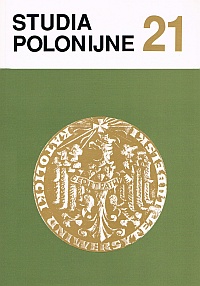The specific character of Polish economic and military emigration to Egypt up to the beginning of the 20th century
Main Article Content
Abstract
In the article it is shown that Poles went to Egypt from the medieval times. At the beginning they were knights, priests, pilgrims and travellers. Egypt was best known in Poland of all the countries of the African continent.From the moment of the Polish Republic's fall at the end of the 18th century Polish political, military and economic emigrants started' going to Egypt. The first Poles reached the Nile within the ranks of Napoleon Bonapartes French Expedition Corps. Napoleon spent some time there at the break of the 18th century and he wanted to stop England from maintaining contacts with its overseas territories in the Middle East. Next political refugees came to Egypt after the fall of the November Uprising, when the Egyptian Muhammad Ali wanted them to join his army. Polish soldiers also went to the country of the Pyramids after the end of the Crimean War in 1856 when they lost the possibility to earn their living in the Turkish army as well as to return to Poland. About 80 members of the January Uprising worked on the construction of the Suez Canal in Egypt.
In the whole of the 19th century Polish economic emigrants went to Egypt. They worked there as craftsmen, doctors, engineers and soldiers. The Polish engineers who built the Suez Canal, officers in the Egyptian Army and doctors who organized the medical service at the Egyptian court were among the most outstanding representatives of Polish emigrants to Egypt. In spite of this during the whole of that period the Polish colony in Egypt was not larger than 100 people.
During World War I the Polish emigrants in Egypt established the first organization whose main aim was to regain independence for Poland. It was the first organization of this kind in North Africa and one of the first ones on the African continent. After 1918 a few of the Poles returned to Poland and a group of several dozen remained on the Nile; they were mainly Polish Jews.

